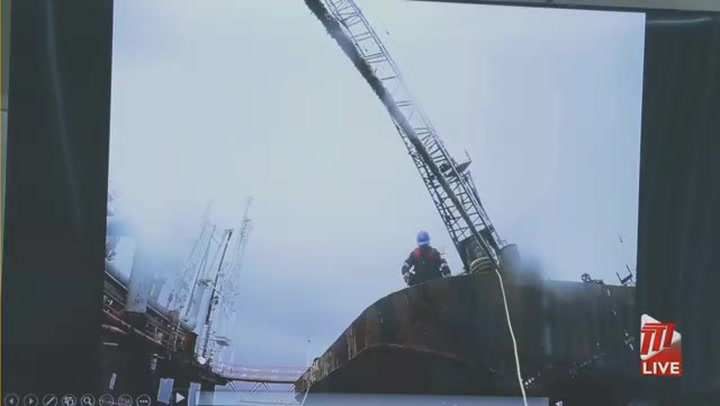- Messages
- 54,470
- Reaction score
- 8,575
- # of dives
- 500 - 999
The original incident thread...
 scubaboard.com
scubaboard.com

 tt.loopnews.com
tt.loopnews.com
Four lost, one saved - Pointe-a-Pierre, Trinidad and Tobago
Paria Trading Company is a state-owned fuel trading firm in Trinidad and Tobago. The tiny country off the coast of Venezuela is only the size of a small Texas county, but it must be covered in oil and gas refineries...

OSHA report: LMCS divers weren’t trained to handle Delta P hazard
The four divers who lost their lives while trapped in a pipeline belonging to the Paria Fuel Trading Company on February 25, 2022, were not trained or properly equipped to handle emergencies such as a Delta P event. That’s according...
The four divers who lost their lives while trapped in a pipeline belonging to the Paria Fuel Trading Company on February 25, 2022, were not trained or properly equipped to handle emergencies such as a Delta P event.
That’s according to the Lead Counsel of the Commission of Enquiry into the tragic circumstances surrounding the incident, Ramesh Lawrence Maharaj, who spoke at the first hearing into the incident on Monday (November 21).
Maharaj was at the time reading from the report commissioned by the Occupational Safety and Health Agency (OSHA) from Texas-based firm, the Association of Diving Contractors International Inc (ADCI).
Maharaj noted that the report was dated July 29, 2022, and was signed by ADCI’s executive director, Phil Newsome, who has experience as a commercial diver and a diving instructor.
Maharaj pointed out that Newsome also specialises in Delta P investigations as he serves as part of the company’s Delta-P task force.
Maharaj explained that the report defines Delta P as a differential pressure- the difference in pressure between any two points in an open or closed system that can result in a fluid flow, creating a hazard to the diver.
He said the report also assessed the operational readiness and safety management of LMCS as well as the failure of Paria officials and the failure of the Trinidad and Tobago Coast Guard to respond to the emergency and effect a rescue operation.
“The findings of the report included the following: only two members of the dive team were in possession of commercial diving certification. The remainder of the dive team was in possession of recreational scuba certification.”
Maharaj said the report highlighted that scuba certification was not intended or designed to prepare divers for commercial diving.
He said the diving personnel, therefore, were inadequately trained for commercial diving, specifically to perform an operation that involves differential pressure hazards.
He said the report also noted that the contractor (LMCS) failed to manage safety with respect to dealing with differential pressure hazards.
Maharaj said the operations and safety observations concerning the contractor and the facility operator also did not include umbilical management as the dive operation was performed on scuba.
“Scuba diving was absolutely not the tool for the job and the type of operation and the location offshore from the main facility.”
Maharaj said the report highlighted that it was apparent that no planning, mitigation plan, emergency response plan, pre-dive checks and verifications, as well as access during the dive took into account the potential for a Delta P hazard.
“The testimony of Christopher Boodram (lone survivor) outlines the failure of both Paria officials and the Coast Guard to authorise the timely rescue of the other four divers which ultimately made it a recovery operation.”
On Monday, video and audio of the last words uttered by divers Fyzal Kurban, Kazim Ali Jr, Rishi Nagassar and Yusuf Henry were played before the panel, chaired by Jerome Lynch, QC.
Experts also noted that the men may have been alive for several days after the incident.
Up to Monday Lynch noted that Paria had not yet submitted witness statements, however he said they expect a report from the company by Easter 2023.





